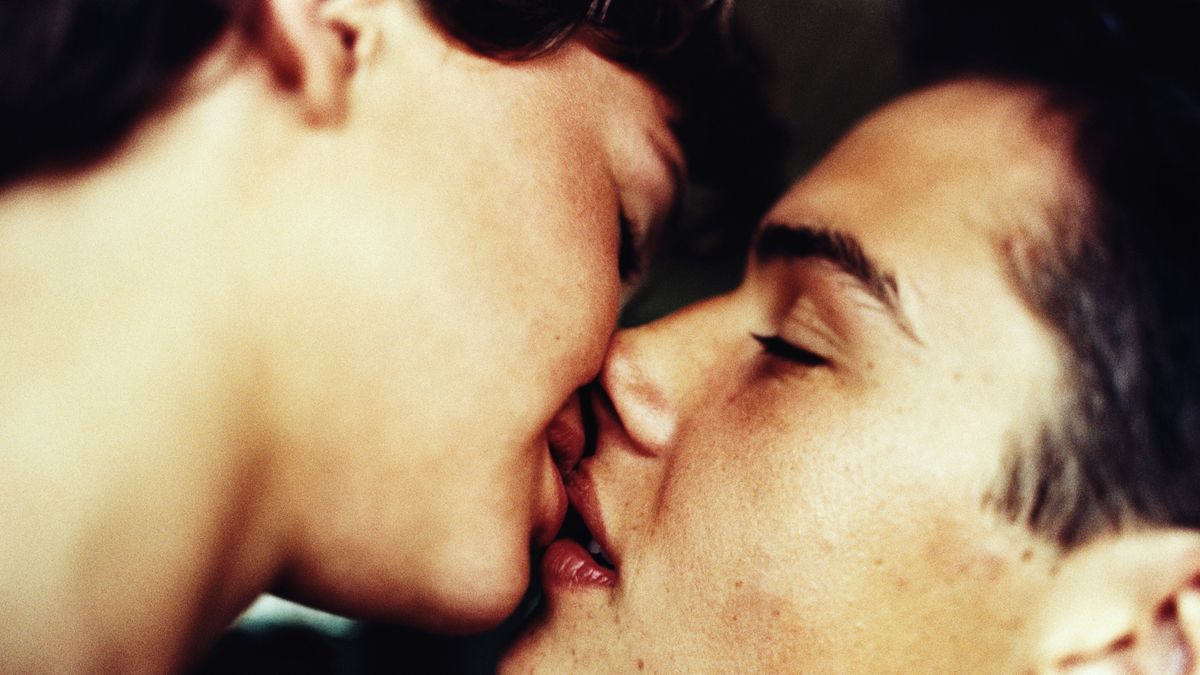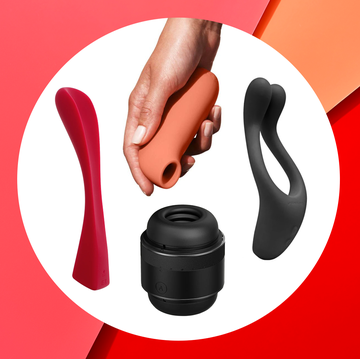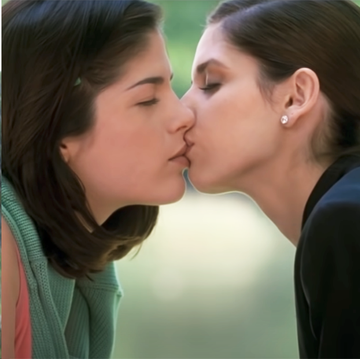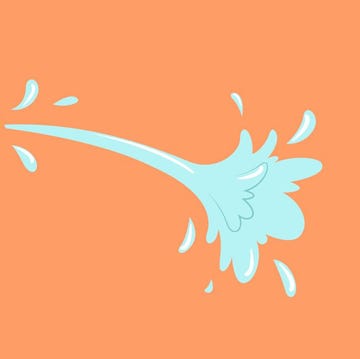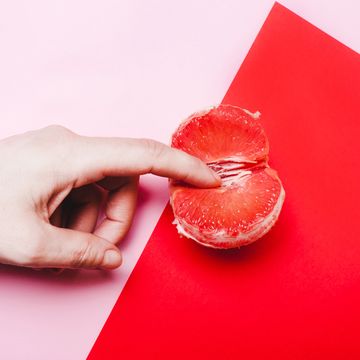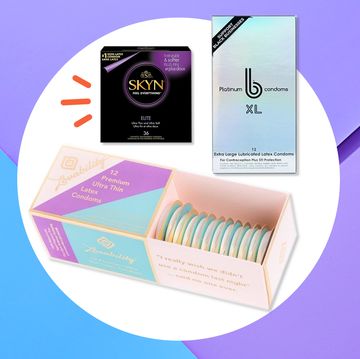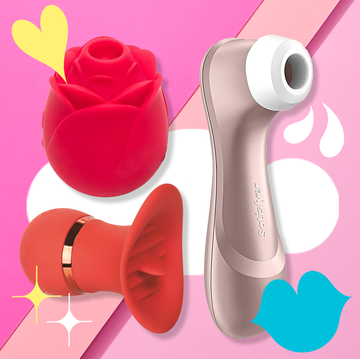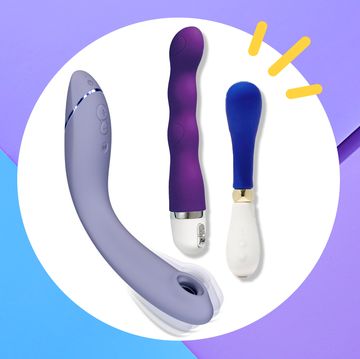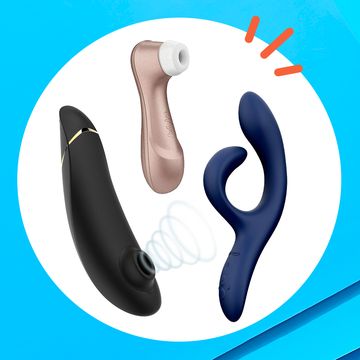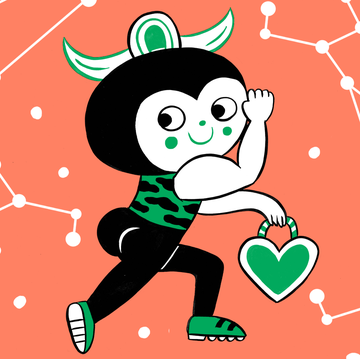Everyone’s been there—that phase in an early relationship or situationship when the person you’re seeing consumes every waking thought. You start your mornings checking for a text, and you end the night making up rom-com-esque scenarios in your head just to fall asleep. But here’s the thing: It’s probably not love (and no, not temporary insanity either). You’ve likely just caught a case of infatuation.
Though it might feel a lot like falling head over heels in love, if things are still fresh and new, it’s probably just a potent combo of excitement, thrill, and lust. “Infatuation tends to happen very quickly, and it is often more focused on a strong attraction, admiration, or some form of fantasy of how perfect someone is,” says Leanna Stockard, LMFT, a licensed family and marriage therapist in Massachusetts and Illinois. “Due to this, infatuation is not long-lasting, because once you get to know the person for who they truly are, those feelings tend to go away.”
Now, that’s not to say this person isn’t your soulmate, twin flame, whatever you want to call it. Infatuation can turn into love, but it’s equally important to note that the two aren’t mutually exclusive, either. The latter requires a “deeper experience of care, emotional attachment, and interest in a mate,” says Cortney Warren, PhD, ABPP, a Harvard-trained board-certified psychologist in California. “It [love] evolves over time as you develop a meaningful, intimate relationship with someone.”
Meet the Experts:
Leanna Stockard, LMFT is a family and marriage therapist in Massachusetts and Illinois.
Cortney Warren, PhD, ABPP is a Harvard-trained, board-certified psychologist in California.
Ahead, experts will break down the difference between love and infatuation—and where the two intersect.
What's the main difference between love and infatuation?
Put simply, infatuation is that hot and heavy, sparks flying feeling you get around someone you like. It's not based on reality or a real connection, but rather the fantasy of that person you’ve built up in your head. According to Warren, it’s possible to be infatuated with someone you just met, someone that catches your eye from across the room, that cutie you follow on social media, or someone you’ve just started to date.
Love, however, grows over time and with intimacy. “The biggest difference is really about how well you know someone and how bonded the relationship is,” she says. “When you’re really in love, it’s generally with someone you’re actually developing a relationship with in a meaningful way. A shared connection with someone you’re passionate about.”
What are the signs of infatuation?
Differentiating between love and infatuation can be difficult, especially if you grew up watching Disney movies and early-aughts romantic comedies. These feelings may seem like two sides of the same coin, but love is deep and built as the result of time and trust, while infatuation is a faster burn that resembles an intense crush. It can still be hard to differentiate between the two, though.
Struggling to determine what you're experiencing? It's probably infatuation and not love if...
1. You’re obsessed with a love interest you don’t know very well.
Love at first sight may or may not exist, but according to Warren, if you’re feeling those intense ~feels~ early on with a romantic interest (specifically, when there isn’t a meaningful or established relationship yet), it’s a sign of infatuation. “Generally, when we’re infatuated with someone, we don’t actually know them very well as a person,” she says. “We are focused on their physical appearance, and aren’t attached to them in a meaningful way.”
An example of this is feeling like you need to be around that person rather than simply wanting to be with them, Stockard adds.
2. You're experiencing physical symptoms of anxiety.
That ache in your gut and sweat in your palms isn’t an excuse to panic-search WebMD for some mysterious disease you don’t have. “Having physical symptoms when you see or think about the person—getting butterflies in your stomach, blushing, starting to sweat, feeling giddy and excited” are all the result of infatuation, Warren says.
3. You feel like they can do no wrong.
“Infatuation is more along the lines of obsession [than love],” Stockard says. Maybe you’re viewing your romantic interest from behind rose-colored glasses, or maybe you just haven’t even spent enough time together for them to reveal their flaws—either way, putting your crush on a pedestal is a sign that you’re in the throes of infatuation.
Love, on the other hand, is "realizing that your partner is not perfect, and that you accept them for their flaws," Stockard says.
4. Your conversations are surface-level.
Infatuation, by nature, involves a surface-level connection—which means your conversations probably haven’t delved any deeper, says Stockard. “You may have a hard time having a strong emotional connection,” she adds, not only because the relationship is new, but because you’re afraid (subconsciously or consciously) to destroy the idea of this person you’ve built up in your mind.
What are the signs of love?
You’ve probably heard the whole “when you know, you know” spiel, but that’s not always the case. (Clearly.) Let’s dive into the topic a little deeper—because remember, love is all about getting deeper, right?
It’s probably love and *not* just infatuation if…
1. Your connection feels like it's growing slowly and steadily.
You’ve likely heard this before, but your relationship might just be the real thing if it doesn’t burn hot and fast, but is instead forged methodically on a foundation of compatibility, trust, and emotional vulnerability.
“Love tends to develop more over time,” Stockard says. “You slowly get to know someone on a deeper level, and instead of seeing them as an ‘ideal self,’ you see someone’s imperfections, insecurities, and vulnerabilities, and you accept them for who they are. Love is longer-lasting than the short, passionate phase of infatuation.”
2. You have deep, emotional conversations.
Love happens when you get to know a person on a more intimate level. The shallowness fades away, and the connection is built on what actually matters. “You have more emotional conversations with this person and attempt to get to know them on a deeper level, as opposed to the superficial facts that might lead to infatuation,” Stockard adds.
Here’s what that looks like: really hearing out your partner, discussing tough topics like finances and the future, sharing your vulnerabilities and insecurities, and finding mutual acceptance about all of these things.
3. If you break up, it's hard to move on.
The thing about infatuation is that no matter how intense those feelings may feel, once you’re out of it, you'll be able to bounce back relatively quickly. You might even become infatuated with someone else. The same can’t be said for love.
“It’s very hard to fall out of love,” Warren says. “If we’re in love with someone and then break up, it can be very hard to move on, which is not characteristic of simple infatuation.”
4. You feel safe and secure when you're around them.
When you are able to build a deeper connection (via those intimate conversations and an established foundation of trust), you’re also able to feel safe and secure—which, ding, ding, ding, often equates to love.
“If the relationship stays together after the honeymoon phase, it often will move into a stage of attached togetherness characterized by a safe and secure bond based in mutual love and care,” Warren adds.
Can infatuation turn into love?
The answer isn’t a simple yes or no. Really, it’s like a flip of the coin. Infatuation isn’t built on fact, but rather fantasy—so whether one can turn into the other depends on what’s below the surface.
“If two people are both infatuated with one another and are interested in exploring a relationship, it’s possible that they could transition into a stage of falling in love or being in a meaningful relationship,” Warren says. “To make that happen, both people [need] to make an effort to know one another … and get away from their fantasy view of who the person is and what their life could look like.”
Stockard recommends reminding yourself of your crush's humanity and imperfections, and not letting yourself fully succumb to that infatuation. “Nobody is perfect, and to set yourself up in a relationship imagining that a person is perfect may keep the relationship from progressing into love,” she says. Then, over time, "you will be able to see if your connection to this person is authentic, if you feel like you are compatible with them, and can accept their insecurities or flaws."
Look, infatuation can be fun—and in the early stages of a relationship, it might be inevitable. But if you want to find lasting, real love, infatuation might actually be standing in your way. Since the latter is (or at least, should be) the goal, Warren suggests challenging those idealized thoughts about your partner, while having real conversations and learning more about that person. This can look like regular dinner dates, or even inviting them to join in on hobbies that matter to you. Just use that time to crack things open a little deeper, and you might land with love in your lap.
Megan Schaltegger is an NYC-based writer. She loves strong coffee, eating her way through the Manhattan food scene, and her dog, Murray. She promises not to talk about herself in third person IRL.
